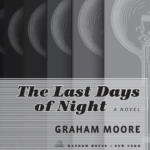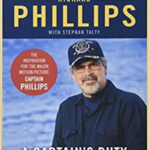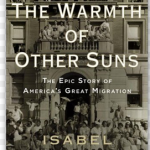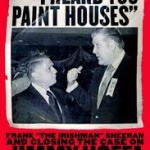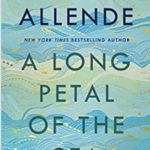The Bully Pulpit: Theodore Rossevelt, William Howard Taft and the Golden Age of Journalism by Doris Kearns Goodwin
The Bully Pulpit: Theodore Roosevelt, William Howard Taft and the Golden Age of Journalism- by Doris Kearns Goodwin I always thought that I was fairly well educated in American history but now after encountering this magnificent book I realize how little I knew about two great American presidents, Teddy Roosevelt and William Howard Taft. Doris Kearns Goodwin, more recently known for Team of Rivals about the presidency of Abraham Lincoln, chose with good reason to couple Roosevelt and Taft in this massive writing project. My electronic reader had about 4870 pages (this will vary with the size of the screen and font) and Amazon showed the hard cover version having 910 pages including the index. In fact by my count almost 15% of the book were footnotes and the index, which is keeping with the scholarly approach of Ms. Goodwin. This does not mean that this is a slow or dry read. To the contrary, the reader is drawn into the lives of these fascinating men and the time period in which they were making American history. I had to remind myself that I was not reading a novel. Quite early in the book Ms. Kearns has chosen to demonstrate that these two men had become very good friends and in fact Roosevelt was of prime importance in allowing Taft to follow him as President after his two terms. But shortly after Taft became President, there occurred a rift between the two that essentially at one point made them bitter enemies. The book exams each of their lives and follows their trajectories. This is done by alternating chapters that shows in depth the various stages of their lives. In the course of seeing their individual assents to the top, we learn they became friends, colleagues and the nature of the extremely close relationship that developed. Ultimately we also were able to follow the lives of these two men and their careers, which is the story of the progressive movement in the United States. It also tells the amazing story of Sam McClure and the muckraker journalists. In a world where there was no mass media, no radio, television or Internet; a magazine by the name of McClure’s Magazine was extremely popular. The magazine evolved from the leading literary magazine to one that provided extensive investigations and in-depth exposes, which led to political and social changes in the regulation by the government of several monopolistic industries. Some of the respected authors and journalists who wrote for McClure include Robert Louis Stevenson, Rudyard Kipling, and Sir Arthur Conan Doyle. When McClure moved to important political issues his authors included Ida Tarbell who told the story behind John Rockefeller and the Standard Oil monopoly, Ray Baker who wrote about the Right to Work and the terrible treatment of those who attempted to organize labor and Lincoln Steffens who was best known for his writing about political corruption. There was also a discussion about the well known muckraker Upton Sinclair whose novel The Jungle told of the horrors of the meatpacking industry. It is most striking how these writers not only had great impact on the public but also how receptive Teddy Roosevelt was to meet them in person and learn first hand of their investigations. This all led to the major reforms that were started by Roosevelt and carried forth by Taft and how Congress was pressured to respond with the needed legislation. In order to appreciate the depth and insight that Doris Kearns Goodwin was able to achieve about these two Presidents and the events of the day, you have to understand the sources, which she used. As would be expected, there are numerous quotes from the newspapers of that time which followed the contemporary political events and personalities. The personal method for communication was letter writing. A great deal of the personal and official correspondence of these figures has been preserved. There also are available to historians and writers, the diaries of many of them as well as those of people close to them which often reflect the details of events as well as the emotional tone, which occurred in various interactions. Eventually many of the key players wrote autobiographies and others wrote biographies about them. Kearns and her fact gathering team pieced things together so the book read like a well-written novel I imagine that different readers will come away with varied impressions, particularly about these two U.S Presidents. It does seem that I now know more about them than I do about many important people in the news today and probably more than I do about many everyday people with whom I interact. As much as I admire Teddy Roosevelt and appreciate his accomplishments and determination to do what he believed was right for this country (and was subsequently proven to be correct), I also appreciate his shortcomings. He became a national hero when he led, the Rough Riders into Cuba to needlessly risk his life and others which was more likely a personal ego trip. His break with his very close friend William Howard Taft was clearly his doing because he felt slighted for clearly insignificant reasons. Even his formation of the ill-fated Bull Moose Party which cost Taft the chance to serve a second term seemed to be another ego trip. On the other hand, Taft came across to be a very sincere person who not only cared about the people he served but had the ability to feel empathy for the individuals in his life including Roosevelt. It is ironic that Taft who would have chosen being Chief Justice of the Supreme Court over being president, which he probably never really wanted to be, never-the-less accomplished so much in his one term as president and then fortuitously had a chance to serve as Chief Justice in his later years. These are just a few samplings of the type of insights you may get as you read about these men and the history of their times.
I always thought that I was fairly well educated in American history but now after encountering this magnificent book I realize how little I knew about two great American presidents, Teddy Roosevelt and William Howard Taft. Doris Kearns Goodwin, more recently known for Team of Rivals about the presidency of Abraham Lincoln, chose with good reason to couple Roosevelt and Taft in this massive writing project. My electronic reader had about 4870 pages (this will vary with the size of the screen and font) and Amazon showed the hard cover version having 910 pages including the index. In fact by my count almost 15% of the book were footnotes and the index, which is keeping with the scholarly approach of Ms. Goodwin. This does not mean that this is a slow or dry read. To the contrary, the reader is drawn into the lives of these fascinating men and the time period in which they were making American history. I had to remind myself that I was not reading a novel. Quite early in the book Ms. Kearns has chosen to demonstrate that these two men had become very good friends and in fact Roosevelt was of prime importance in allowing Taft to follow him as President after his two terms. But shortly after Taft became President, there occurred a rift between the two that essentially at one point made them bitter enemies. The book exams each of their lives and follows their trajectories. This is done by alternating chapters that shows in depth the various stages of their lives. In the course of seeing their individual assents to the top, we learn they became friends, colleagues and the nature of the extremely close relationship that developed. Ultimately we also were able to follow the lives of these two men and their careers, which is the story of the progressive movement in the United States. It also tells the amazing story of Sam McClure and the muckraker journalists. In a world where there was no mass media, no radio, television or Internet; a magazine by the name of McClure’s Magazine was extremely popular. The magazine evolved from the leading literary magazine to one that provided extensive investigations and in-depth exposes, which led to political and social changes in the regulation by the government of several monopolistic industries. Some of the respected authors and journalists who wrote for McClure include Robert Louis Stevenson, Rudyard Kipling, and Sir Arthur Conan Doyle. When McClure moved to important political issues his authors included Ida Tarbell who told the story behind John Rockefeller and the Standard Oil monopoly, Ray Baker who wrote about the Right to Work and the terrible treatment of those who attempted to organize labor and Lincoln Steffens who was best known for his writing about political corruption. There was also a discussion about the well known muckraker Upton Sinclair whose novel The Jungle told of the horrors of the meatpacking industry. It is most striking how these writers not only had great impact on the public but also how receptive Teddy Roosevelt was to meet them in person and learn first hand of their investigations. This all led to the major reforms that were started by Roosevelt and carried forth by Taft and how Congress was pressured to respond with the needed legislation. In order to appreciate the depth and insight that Doris Kearns Goodwin was able to achieve about these two Presidents and the events of the day, you have to understand the sources, which she used. As would be expected, there are numerous quotes from the newspapers of that time which followed the contemporary political events and personalities. The personal method for communication was letter writing. A great deal of the personal and official correspondence of these figures has been preserved. There also are available to historians and writers, the diaries of many of them as well as those of people close to them which often reflect the details of events as well as the emotional tone, which occurred in various interactions. Eventually many of the key players wrote autobiographies and others wrote biographies about them. Kearns and her fact gathering team pieced things together so the book read like a well-written novel I imagine that different readers will come away with varied impressions, particularly about these two U.S Presidents. It does seem that I now know more about them than I do about many important people in the news today and probably more than I do about many everyday people with whom I interact. As much as I admire Teddy Roosevelt and appreciate his accomplishments and determination to do what he believed was right for this country (and was subsequently proven to be correct), I also appreciate his shortcomings. He became a national hero when he led, the Rough Riders into Cuba to needlessly risk his life and others which was more likely a personal ego trip. His break with his very close friend William Howard Taft was clearly his doing because he felt slighted for clearly insignificant reasons. Even his formation of the ill-fated Bull Moose Party which cost Taft the chance to serve a second term seemed to be another ego trip. On the other hand, Taft came across to be a very sincere person who not only cared about the people he served but had the ability to feel empathy for the individuals in his life including Roosevelt. It is ironic that Taft who would have chosen being Chief Justice of the Supreme Court over being president, which he probably never really wanted to be, never-the-less accomplished so much in his one term as president and then fortuitously had a chance to serve as Chief Justice in his later years. These are just a few samplings of the type of insights you may get as you read about these men and the history of their times.

